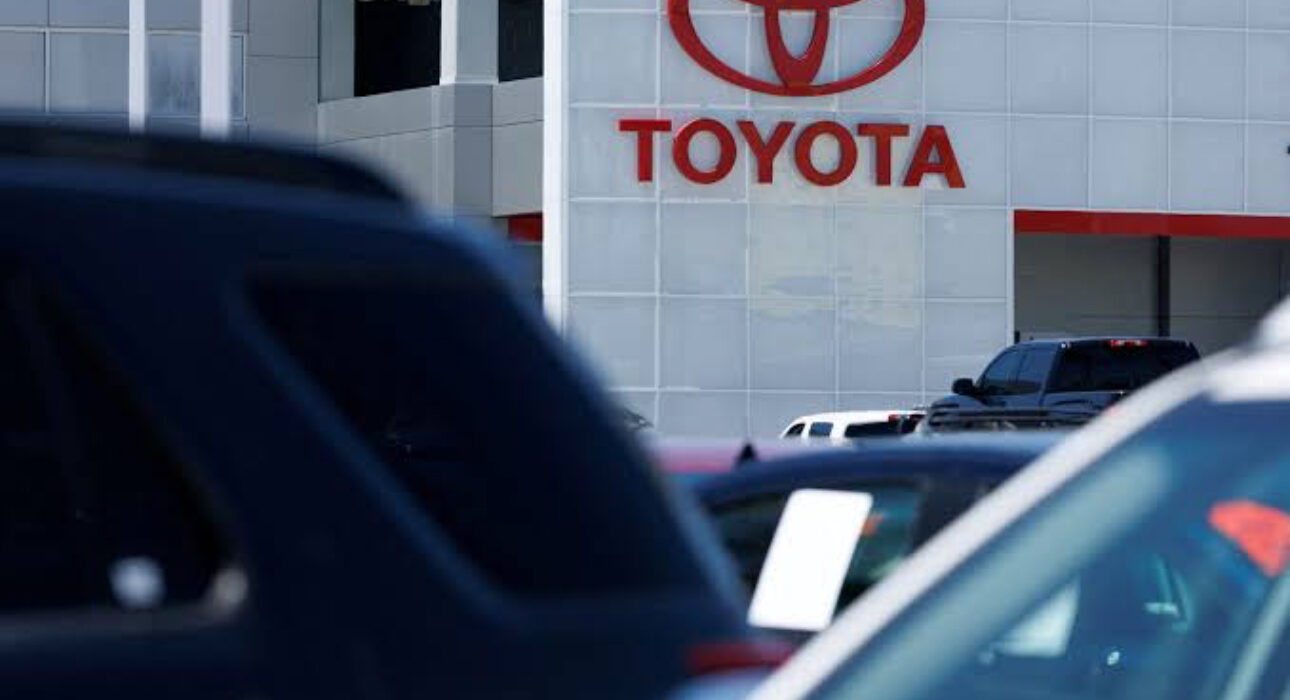Toyota Slashes Profit Forecast over Hit from U.S. Tariffs

Japanese auto giant, Toyota Motor Corporation has revised its full-year profit forecast downward after revealing that new U.S. tariffs on Japanese vehicles have inflicted significant damage on its earnings.
The automaker now expects its operating profit to fall short by over ¥600 billion due to the fresh 15% import tariffs imposed by the United States under President Donald Trump’s renewed trade policy.
In its financial report for the first quarter of the fiscal year, Toyota announced a 37% drop in net profit for April through June, plunging from ¥1.33 trillion last year to ¥841 billion (approximately $5.7 billion).
This sharp decline has prompted the company to lower its full-year operating profit projection from ¥3.8 trillion to ¥3.2 trillion (about $21.7 billion), marking a 16% reduction.
Toyota said the new tariffs alone have already delivered a blow of nearly ¥450 billion (about $3 billion) to its operating income in just three months. The company now estimates that the total cost of tariffs over the course of the fiscal year could rise as high as ¥1.4 trillion ($9.5 billion), far exceeding its previous estimate of ¥180 billion.
While the automaker remains the global leader in vehicle sales, with continued strong demand for its hybrid models, executives warned that rising protectionism and an unpredictable trade environment are becoming critical threats to stability and planning. In addition to the U.S. tariffs, Toyota pointed to a stronger yen and higher raw material costs as further headwinds pressuring margins.
Despite these challenges, the company maintained its global sales momentum, buoyed by strong performance in Asia and Europe.
However, the adverse effects of the tariffs—combined with global supply chain disruptions and inflationary pressures—have offset many of those gains.
As part of its strategic response, Toyota announced it will begin construction of a new assembly plant in Japan, scheduled to start operations in the early 2030s.
The plant is aimed at reinforcing domestic production capacity and reducing future exposure to foreign trade barriers.
Toyota’s warning comes at a time when several other Japanese automakers are also reassessing their global strategies in light of the U.S. tariffs. Analysts note that while Toyota still enjoys a dominant market share and a loyal consumer base, prolonged trade friction could force it—and other manufacturers—to accelerate shifts in manufacturing and supply chain models.
The latest development also rekindles concerns about global economic fragmentation and the future of international trade in key sectors such as automotive manufacturing, which has long thrived on interconnected supply chains and open markets.
As Washington’s tariffs reshape global trade flows, Toyota’s revised forecast stands as one of the clearest indicators yet of the economic consequences tied to escalating trade tensions between two of the world’s largest economies.









